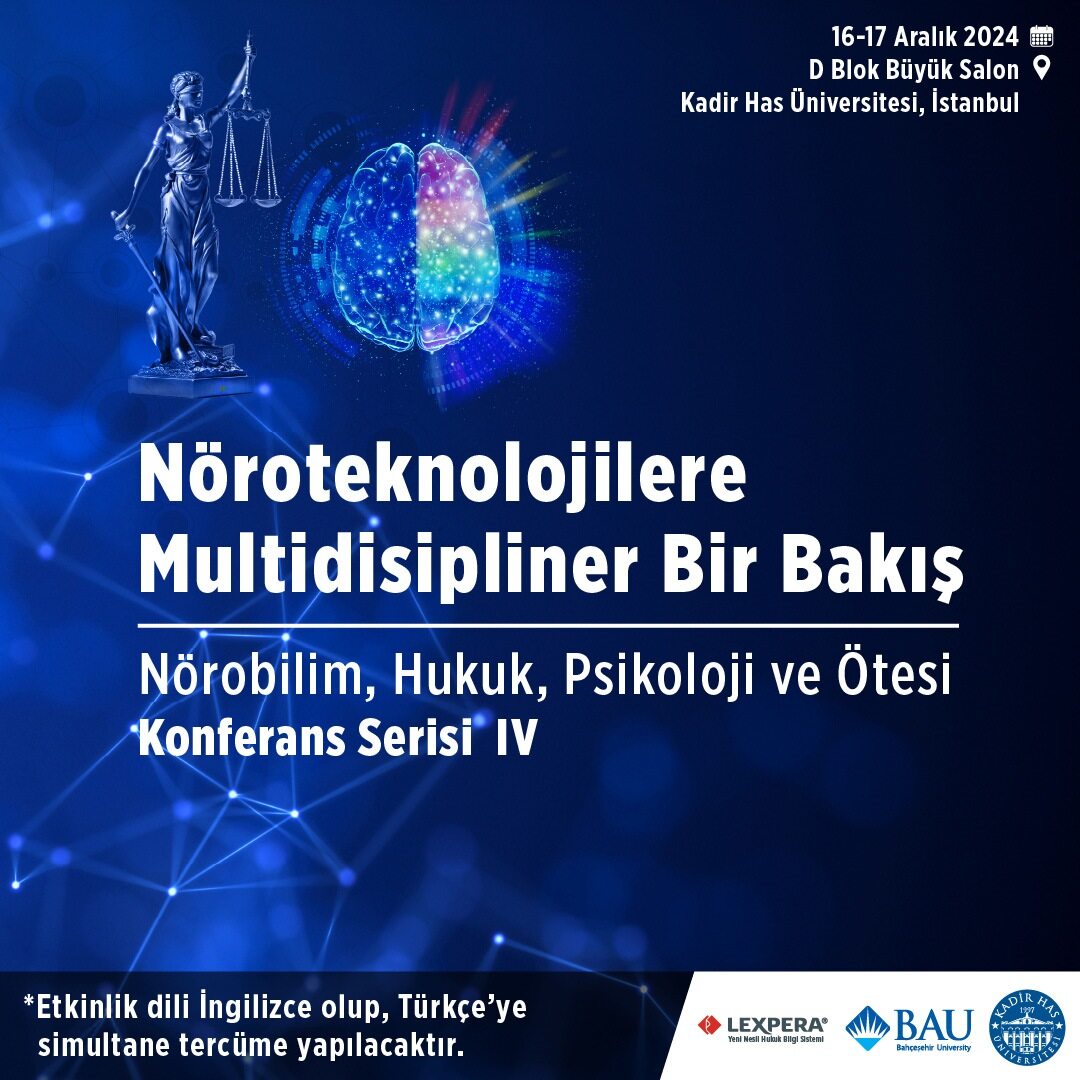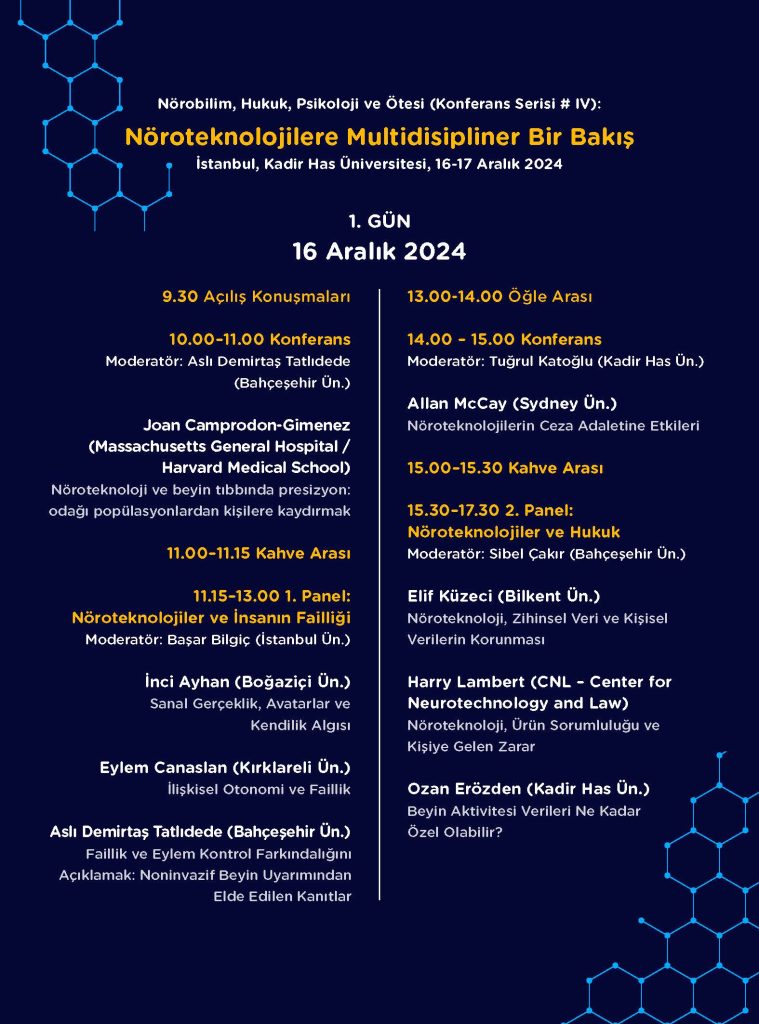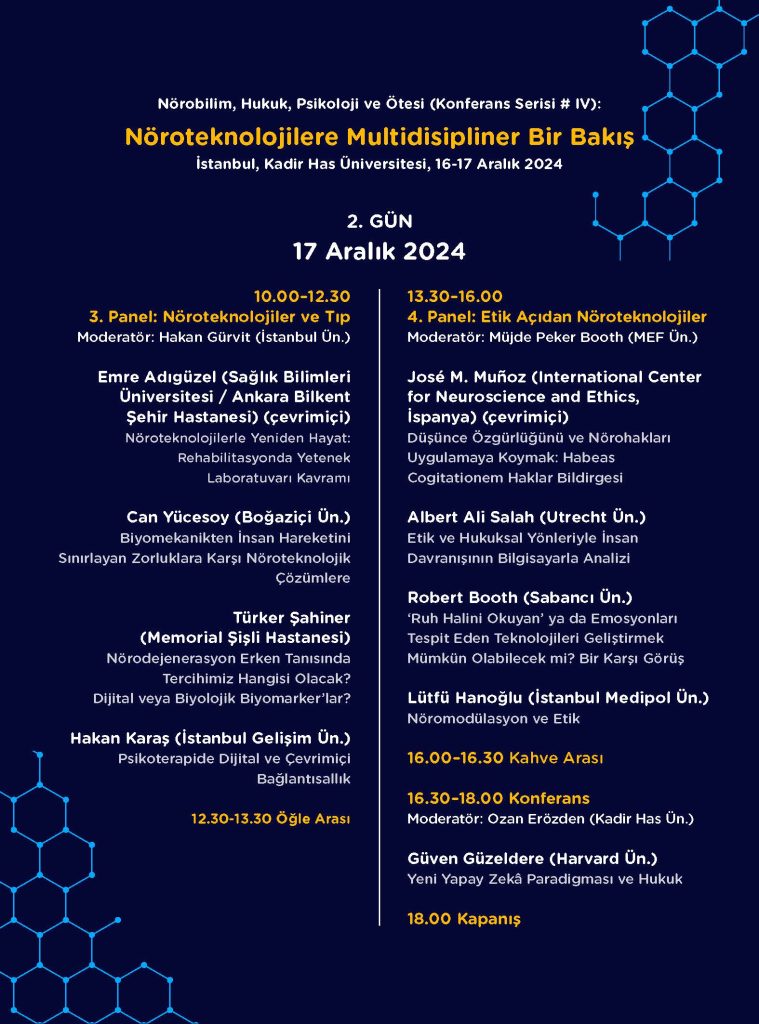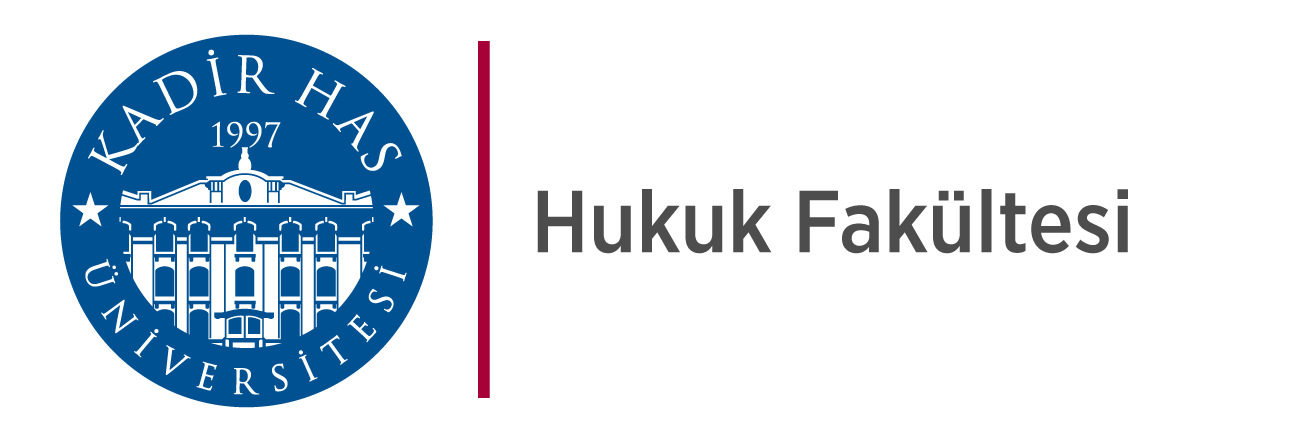
Nöroteknolojilere Multidisipliner Bir Bakış
Nöroteknolojilere Multidisipliner Bir Bakış
İstanbul, Kadir Has Üniversitesi, 16-17 Aralık 2024
Nöroteknolojiler terimi, sinir sistemi ile etkileşime giren veya sinirsel aktiviteleri kaydeden ya da bu aktivitelere müdahale eden geniş bir cihaz ve sistem yelpazesini ifade eder. Bu teknolojiler, tıbbi alanda teşhis ve tedavi amaçlı olarak onlarca yıldır kullanılmaktadır. Bununla birlikte, son gelişmeler nöroteknolojilerin toplumsal yaşamın çeşitli alanlarında da kullanılma potansiyeline sahip olduğunu göstermekte ve bu teknolojilerin varlığının belirli sektörlerin ötesine geçeceğini düşündürmektedir.
Öncelikle, bu teknolojiler insan yeteneklerini hem fiziksel hem de bilişsel olarak geliştirme konusunda büyük bir potansiyel taşımaktadır. Nöroteknolojileri erişilebilir kılmaya yönelik geliştirici bilimsel ve ticari çabalar düzenli olarak artmaktadır. Bu eğilim, nöroteknolojilerin yaygın kullanımıyla ‘normal’ olmanın anlamının değiştiği bir geleceğe yol açabilir. Öte yandan, nöroteknolojilerin beyin aktivitelerini izlemek ve manipüle etmek için kullanılabileceğine dair endişeler de giderek artmaktadır. Bu endişeler ilk olarak 1960’ların sonunda dile getirilmişti. Ancak o dönemde tartışmalar daha çok varsayımsal iddialar ve popüler inanışlar üzerinden yürütülmekte, sağlam bilimsel bulgulara dayanmamaktaydı. Günümüzde ise, nöroteknolojilerin “ruh hali okuma” (henüz “zihin okuma” değil) ve toplumsal davranışları manipüle etme kapasitesini araştıran yoğun bilimsel çalışmalara tanıklık etmekteyiz. Bu nedenle, nöroteknolojilerin demokratik ilkelere dayanan bir toplumsal düzeni tehdit etme ihtimaline dair endişelerin artık daha bilimsel sağlam temelleri bulunduğu kesindir.
Nöroteknolojilerin yaygın bir şekilde kullanılmasını insanın toplumsal örgütlenmesi açısından bir tehdit mi yoksa bir nimet mi olarak görmeliyiz? Bu konferans, nöroteknolojilerin olumlu ve olumsuz yönlerine dair bir tartışma zemini oluşturarak multidisipliner bir diyaloğa alan açmayı hedeflemektedir. Uzmanların çeşitli panellerde ve ana konuşmalarda ele alacakları konuların listesi aşağıdaki gibidir:
- Nöroteknolojiler ve İnsanın Failliği: Nöroteknolojilerin insanın kendilik algısını değiştirme potansiyeli nedir??
- Nöroteknolojiler ve Hukuk: Nöroteknolojilerdeki gelişmelerin hukuk kuramı ve uygulaması için ortaya çıkardığı sorunlar nelerdir?
- Nöroteknolojiler ve Tıp: Nöroteknolojilerin sinir harabiyeti ve nörolojik hastalıklar kaynaklı tıbbi sorunları giderme potansiyeli nedir?
- Nöroteknolojiler ve Etik: Nöroteknolojilerdeki ilerlemeler etik prensipler ve insan onuru kavramı için benzeri görülmemiş bir tehdit oluşturuyor mu?
Etkinliğe katılanlara elektronik katılım sertifikası verilecektir. Kayıt formu için
Düzenleme Komitesi
- Prof. Dr. Ozan Erözden
- Prof. Dr. Aslı Demirtaş Tatlıdede
- Arş. Gör. Ece Uyanık
- Arş. Gör. Dr. Doğukan Bingöl
Konferansın kavramsal çerçevesi, etkinlik temaları ve detaylı program için lütfen tıklayınız.


“To see details and the event schedule in English, please click: https://law.khas.edu.tr/en/event/neuroscience-law-psychology-and-beyond-conference-series-iv/
